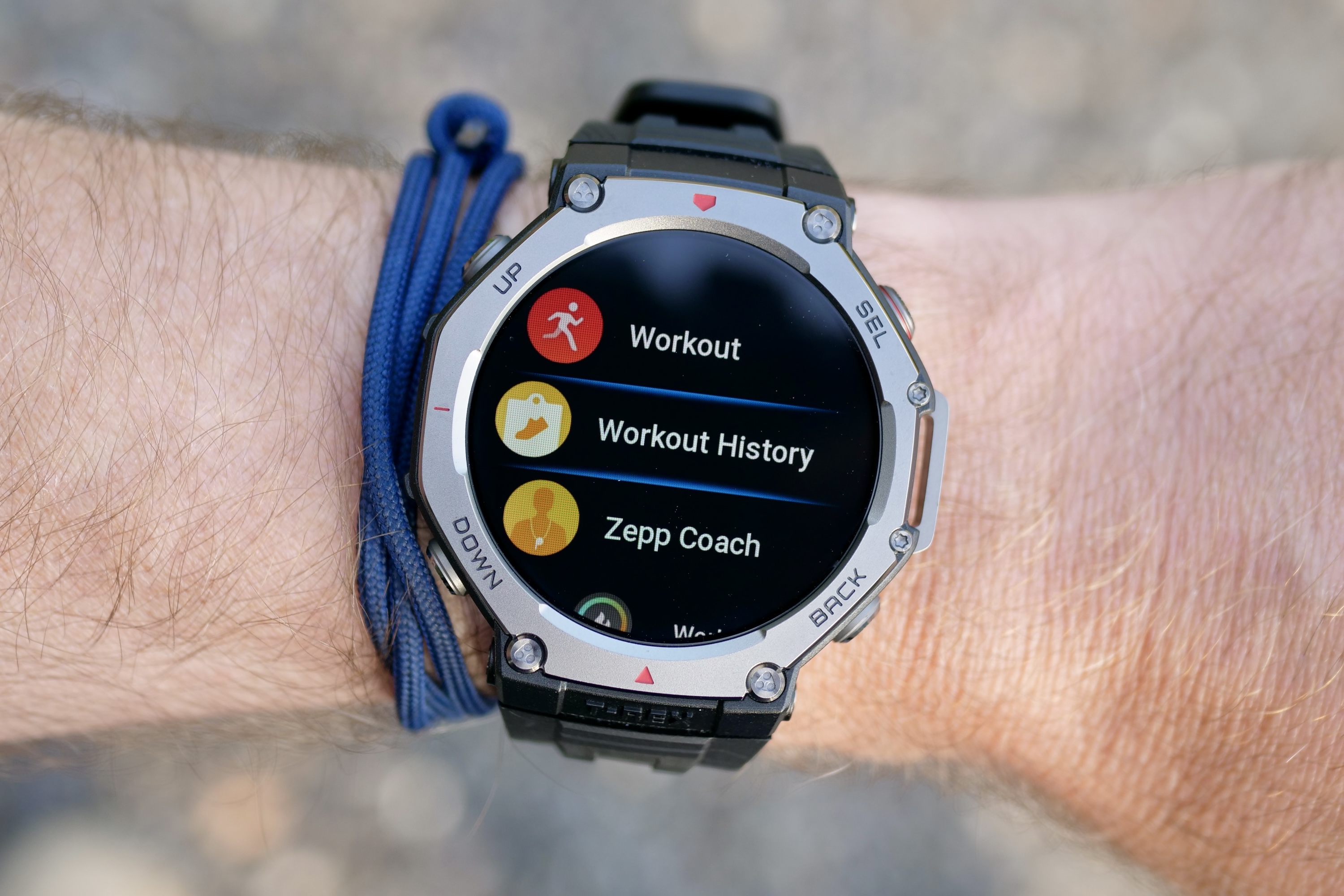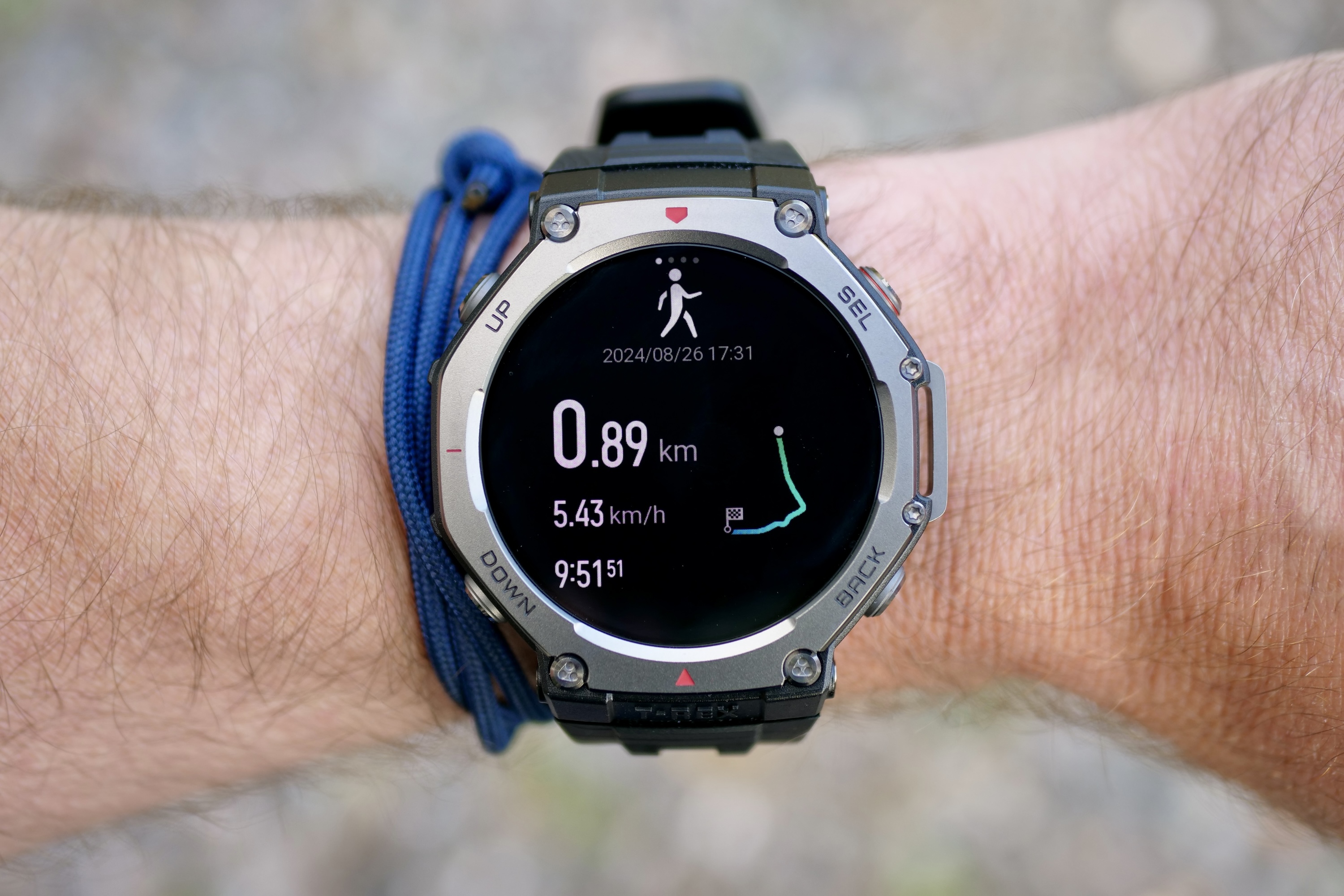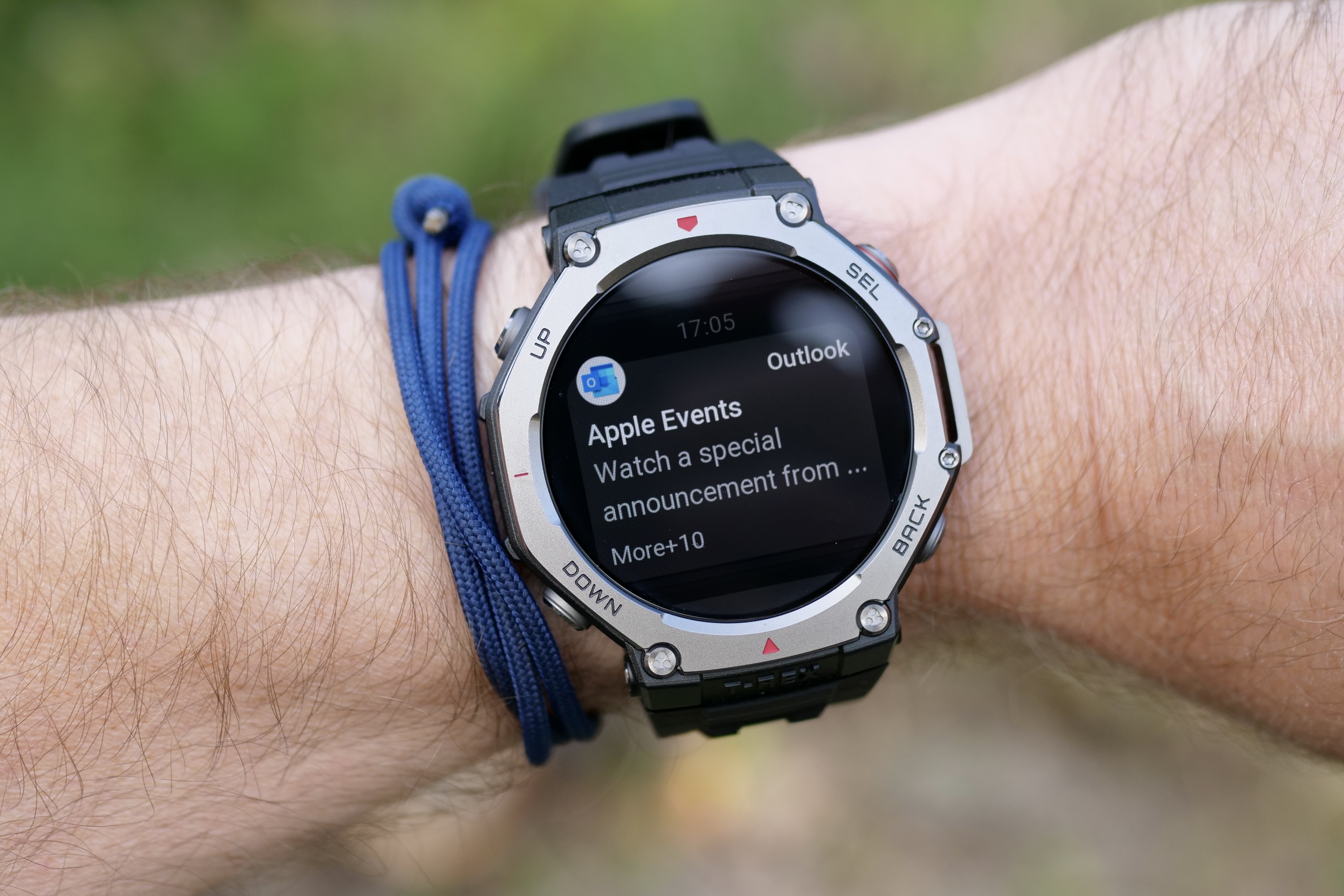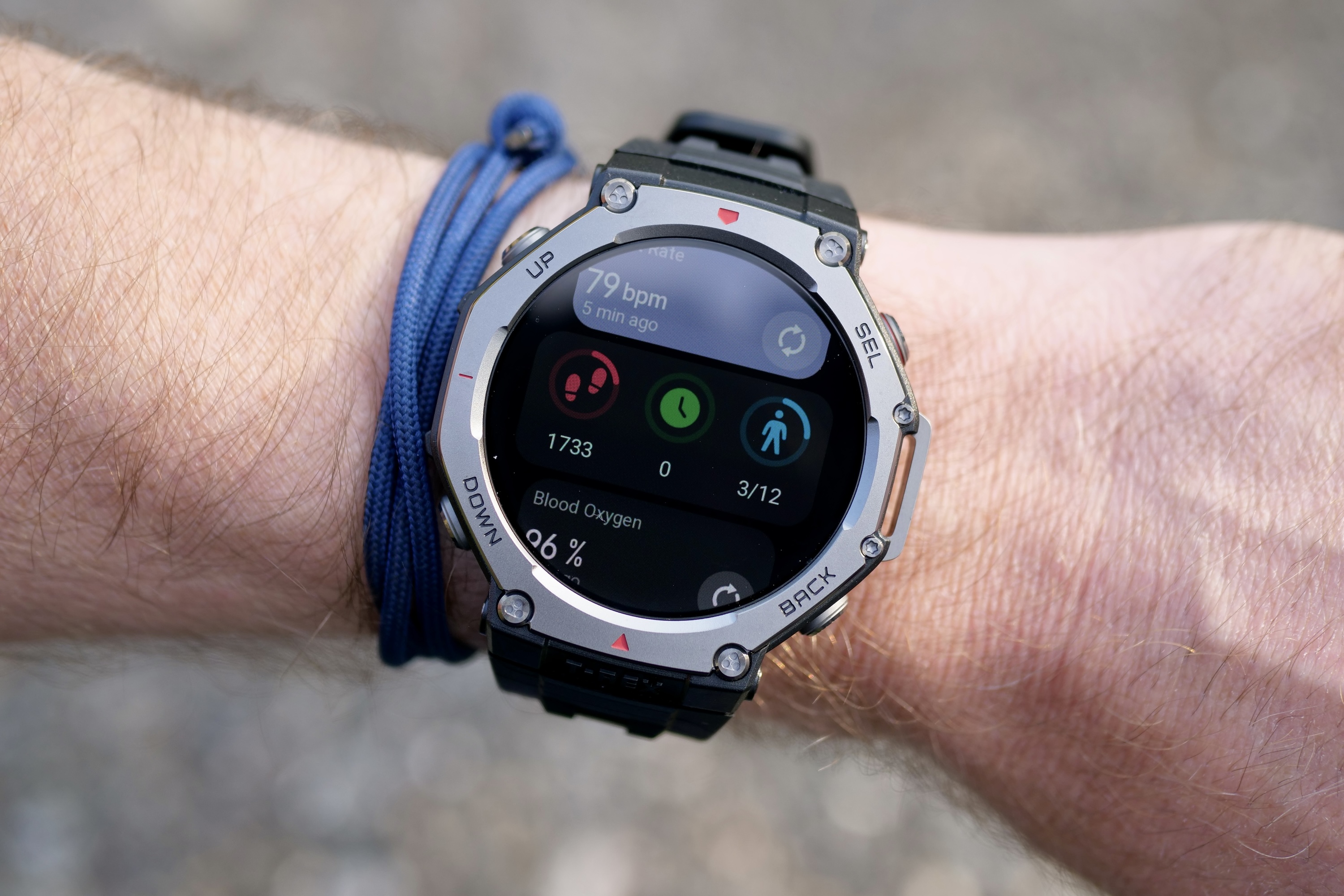The Amazfit T-Rex 3 smartwatch promises to give you the rough-and-tumble style of the Apple Watch Ultra 2 or Samsung Galaxy Watch Ultra without the high price. It’s chunky and tough, but does it have the software and ability to help win you over? Or is there a reason it’s a lot cheaper than its well-known competitors?
I spent some time wearing the T-Rex 3 to find out. Here’s what you need to know.
The Amazfit T-Rex 3: design

The Apple Watch Ultra 2 is a hardcore, pumped-up version of the Apple Watch Series 9, while Samsung chose a more controversial (but, in my opinion, successful) design for the Galaxy Watch Ultra. For the T-Rex 3. Amazfit looked toward the daddy of tough watches, the Casio G-Shock, for further inspiration on its third-generation of tough smartwatch.
The T-Rex 3 combines its circular screen with an octagonal stainless steel bezel, immediately recalling the immensely popular G-Shock GA-2100 series. Like many other G-Shock watches, the T-Rex 3 also has a set of four buttons with a grippy texture on the polymer case at the 10, 2, 4, and 8 o’clock positions. One thing that sets it apart is the unusual “bridge” at 3 o’clock. It’s made of metal and has the Amazfit name stamped on it. I’ve no idea what purpose (if any) it’s supposed to serve, but it’s a fun design twist, although it can dig into your hand when your wrist is flexed.

The smartwatch is attached to your wrist with a floppy and flexible silicone strap, secured with a plastic buckle, and held in place by two keepers. On the underside are a pair of edge guards to keep the body centrally placed on your wrist, another design aspect taken from many G-Shock watches. It’s comfortable to wear and weighs only 68 grams, but it can get a bit sweaty under the silicone strap. The big 48mm case is wide and quite thick at nearly 14mm.
Is the watch tough enough?

How about the toughness and outdoor credentials? The case is made from polymer plastic, while the bezel, buttons, and bridge are made from 316L stainless steel. It’s Gorilla Glass over the screen and the smartwatch has 10ATM water resistance, plus it has been certified for free diving to a depth of 45 meters. It’s made to withstand temperatures from -22 degrees Fahrenheit to 158 degrees Fahrenheit, which is probably more than your own body would.
It has a strong selection of sensors inside, including a barometer, a geomagnetic sensor, a gyroscope, an accelerometer, and a temperature sensor. The 1.5-inch AMOLED screen has a 2000-nit peak brightness and a special glove mode, so it still recognizes inputs even when you’re wearing 2mm thick gloves. Finally, it has dual-band GPS for stronger accuracy without the need to use your phone.

The buttons are easy to locate and press, and the function is clearly marked on the bezel. However, I found the button layout a little awkward, as I’d prefer the Back button to be where the Down button is placed, as it’s more comfortable for me as I wear my watch on my left wrist. It’ll be suitable for anyone who wears the watch on their right wrist. The Amazfit T-Rex 3’s polymer case doesn’t have the same cachet as titanium, but it’s very light, and the rest of the design and materials used mean it should be durable enough for most outdoor activities.
Software and battery life

The Amazfit T-Rex 3 uses Amazfit’s own software rather than Google’s Wear OS and connects with the Zepp app, which is available for Android and iOS. I’ve tested the watch with Zepp installed on the Google Pixel 9 Pro. Despite being a beta app, it has proven reliable, and once I’d given the app security permissions, it received notifications reliably, too. You interact with the menu system on the watch using the buttons or the touchscreen, and it’s suitably fast and responsive.
The app and watch are packed with health and fitness features. There’s heart rate and blood oxygen monitoring; sleep tracking with heart rate variability (HRV); 170 workout modes, data points such as V02 Max, training load, and recovery time; plus a Readiness score when you wear your watch to track sleep. There’s even some AI, with the Zepp Flow feature integrating ChatGPT-4o for voice control.
Amazfit expects the battery to last 13 days with “heavy” use, which we take to include the always-on screen and all health-tracking features enabled. Turn these features off, and the battery may extend out to 27 days before it needs recharging. Use GPS continuously at its most accurate setting, and the battery will return 42 hours of use or up to 180 hours in its extended GPS mode.
I’ve been wearing the T-Rex 3 for three days with the ambient screen and health tracking on, and although I haven’t tracked sleep with it, I have recorded a couple of workouts and the battery is at 88%, suggesting it’ll meet Amazfit’s estimated usage time. The workouts tracked return figures I expect and are in line with what I have seen from other wearables. The data is presented in a clear and logical way in the app.
Is this a real Ultra watch alternative?

The Amazfit T-Rex 3 really looks the part. Just like a G-Shock, it has a true presence on your wrist, and while I like the feel of upmarket materials on my wrist, the lightweight body is still appealing, just in a different way. The screen is easily visible in sunlight, the software isn’t complicated to learn, and the physical buttons mean you don’t get tied down to only using the touchscreen or a rotating crown. While it has somewhat shamelessly borrowed from a G-Shock, at least it has borrowed the good parts.
There are masses of sporting abilities and features, too, and it doesn’t get carried away with adding supposedly “Ultra” features that only very few will ever use just to grab some easy marketing. Active people who enjoy a range of sports will find its varied modes helpful, and the Zepp app is reminiscent of Samsung Health in its layout and design. If you’ve questioned the need for an emergency siren, LTE connectivity, and a $600-plus price tag, the Amazfit T-Rex 3 should appeal.
It’s priced at $280, less than half the price of its Ultra competitors, and in line with what you’d pay for the Samsung Galaxy Watch 7 and the Apple Watch Series 9. While Amazfit wants it to be a genuine Ultra smartwatch alternative, I think it fits somewhere in between the standard and Ultra models, and it’s a very good place to be. If the Ultra watches are too expensive and generally too focused for you, but you still want more than a normal smartwatch, the Amazfit T-Rex 3 looks to be a very good middle ground.









